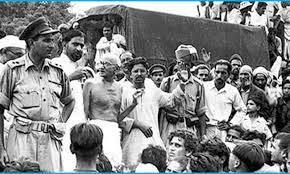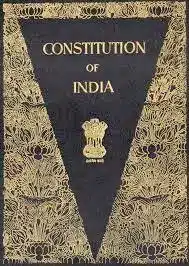List of Important MCQs On Immunity are given below :
Before attempting these MCQs, if you want to study about different types of immunity then click here.
1. Which of the following systems protects our body against disease-causing microbes?
(a) Immune system
(b) Digestive system
(c) Excretory system
(d) Respiratory system
Sol: (a) Immune system.
2. Which of the following immunity is present from our birth?
(a) Innate Immunity
(b) Active immunity
(c) Passive immunity
(d) Acquired immunity
Sol: (a) Innate Immunity
3. Neutrophils, basophil, lymphocytes, eosinophil and monocytes are examples of
(a) Physical barrier
(b) Cellular barriers
(c) Cytokine barriers
(d) Physiological barriers
Sol: (b) Cellular barriers.
4. B-cells and T-cells are two types of cells involved in
(a) Innate Immunity
(b) Active immunity
(c) Passive immunity
(d) Acquired immunity
Sol: (d) Acquired immunity.
5. The common disorders caused by a poor immune system include
(a) Epidemic Diseases
(b) Deficiency diseases
(c) Autoimmune diseases
(d) None of the above
Sol: (a) Epidemic diseases.
6. Which of the following statements is true about Passive Immunity?
(a) This immunity causes reactions
(b) This immunity develops immediately
(c) This immunity lasts only for a few weeks or months
(d) All of the above.
Sol: (d) All of the above.
7. The branch of biology involved in the study of immune systems in all organisms is called
(a) Botany
(b) Microbiology
(c) Immunology
(d) Biotechnology
Sol: (c) Immunology.
8. Which of the following cells is involved in cell-mediated immunity?
(a) T-cells
(b) B-cells
(c) Mast cells
(d) Both T and B cells
Sol: (a) T-cells.
9. Which of the following conveys the longest-lasting immunity to an infectious agent?
(a) Active immunity
(b) Passive immunity
(c) Both (a) and (b)
(d) None of the above
Sol: (a) Active immunity.
10. Which of the following does not act as a protecting barrier for the body surface?
(a) Skin
(b) Mucus
(c) Gastric acid
(d) Salivary amylase
Sol: (d) Salivary amylase.
11. Which of the following cells is involved in humoral immunity?
(a) T-cells
(b) B-cells
(c) Mast cells
(d) Both T and B cells
Sol: (b) B-cells.
12. Which of the following immunity is obtained during a lifetime?
(a) Innate immunity
(b) Active immunity
(c) Passive immunity
(d) Both (b) and (c)
Sol: (d) Both (b) and (c).
13. Skin, body hair, cilia, eyelashes, the respiratory tract and the gastrointestinal tract are examples of
(a) Physical barrier
(b) Cellular barriers
(c) Cytokine barriers
(d) Physiological barriers
Sol: (a) Physical barrier.
14. Cells Involved In Innate Immunity are
(a) Phagocytes
(b) Macrophages
(c) Natural Killer Cells
(d) All of the above
Sol: (d) All of the above.

15. Which of the following immunity is called the first line of defence?
(a) Innate Immunity
(b) Active immunity
(c) Passive immunity
(d) Acquired immunity
Sol: (a) Innate Immunity.
16. How many types of antibodies are there?
(a) Five.
(b) Three.
(c) Two.
(d) Four.
Sol: (a) Five.
17. Which of the following statements is true about the IgM of humans?
(a) IgM can cross the placenta
(b) IgM can protect the mucosal surface
(c) IgM is produced by high-affinity plasma cells
(d) IgM is primarily restricted in the circulation
Sol:(d) IgM is primarily restricted in the circulation.
18. Interferons are
(a) Cytokine barriers
(b) Physical barriers
(c) Cellular barriers
(d) Physiological barriers
Sol: (a) Cytokine barriers.
19. Which of the following cells of the immune system do not perform phagocytosis?
(a) Macrophage
(b) Neutrophil
(c) Eosinophil
(d) Basophil
Sol: (d) Basophil
20. Monocytes differentiate into which kind of phagocytic cells?
(a) Neutrophil
(b) B cell
(c) Macrophage
(d) T cell
Sol: (c) Macrophage.
To download the pdf of MCQs On Immunity, click the given below link.
For more MCQs, click here.







